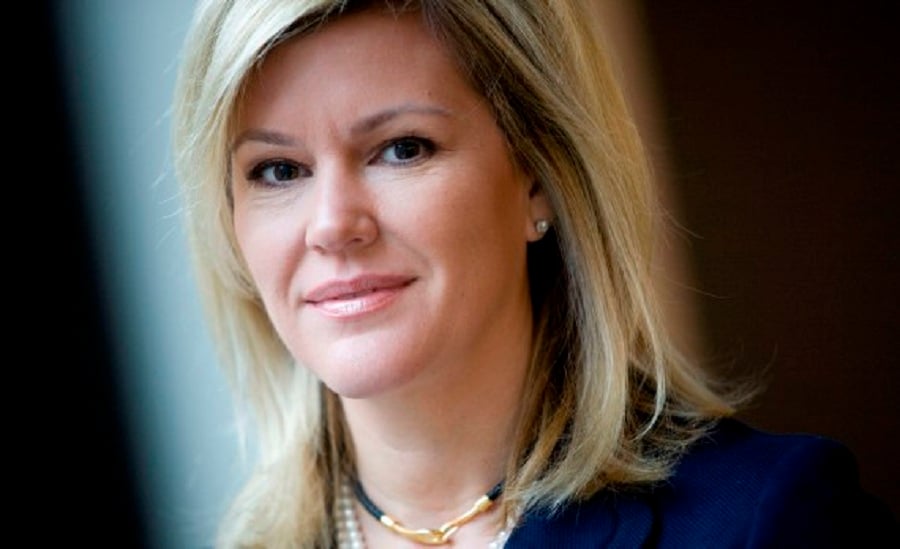It took less than a year for Meredith Whitney's hedge fund to begin unraveling.
Her American Revival Fund started investing in heartland stocks in November 2013, after the Wall Street star predicted on TV and in a book that the center of the U.S. would boom. Even as parts of the region did well, she made wrong-way bets on companies including a retailer that sells mattresses and stereos on credit in Texas. In October, she was headed for the year's eighth monthly drop when her main backer, a fund tied to billionaire Michael Platt,
asked for its money back. Her firm refused.
Starting her debut hedge fund without a staff of analysts to help choose investments and relying too much on one investor's money helped lead Ms. Whitney astray, according to a person with direct knowledge of her firm. Her office on New York's Madison Avenue is on the market, her two top executives left and the fund tied to Platt's BlueCrest Capital Management sued in Bermuda last month to get its $46 million back.
Robert Whitelaw, chairman of the finance department at New York University's Stern School of Business, said a successful fund needs more than an interesting investment thesis.
“What's a thesis? A thesis is a story,” he said. “The first thing is you may have the story wrong, and the second thing is, even if you have the story right, a lot of it is about timing.”
THE PROPHET
Ms. Whitney, 45, was a banking analyst when she shot to fame for presciently warning in 2007 that Citigroup Inc. would have to cut its dividend, months before most saw the financial crisis coming. It brought her the cover of Fortune, lionization in Michael Lewis's “The Big Short,” and a nickname, the Prophet.
In June 2013, she channeled her pessimism about the future of the U.S. coasts and enthusiasm for the low-tax central corridor in a book, “Fate of the States.” Predicting people and businesses will move to the heartland in the decades ahead, she explained that her “brain instinctively works to connect the dots in life, turning mosaics of information into narrative tales of how things came to be and what I think will happen as a result.”
That was an inspiration for her firm, Kenbelle Capital, and its American Revival Fund. The business started trading that November, aiming to capitalize on what she called the next cycle of U.S. growth, according to a presentation at the time. She
closed her advisory firm, telling potential investors at a New York conference that she started her own hedge fund in part because she was tired of others profiting from her ideas, an attendee said.
Her fund presentation lists 16 heartland states, predicting the region's growth over a decade will be twice the national average. The area wasn't a standout in her firm's first 14 months. Companies in the Russell 2000 Index that are based in those states performed about the same as the total index, which climbed almost 10%, according to data compiled by Bloomberg.
American Revival ended its first two months up 4%, thanks to a 30% surge in the Woodlands, Texas-based retailer, Conn's Inc., according to the person familiar with Ms. Whitney's firm, who asked not to be identified talking about internal matters. Her fund didn't post another monthly gain until June. By then, Conn's was down about 40% for the year as loans to customers soured. The fund lost more than $2 million on the pick, the person said.
'DOESN'T RUN'
Losses also included hundreds of thousands of dollars each on San Antonio-based Cullen/Frost Bankers Inc. and Home BancShares Inc. in Arkansas as both slid last year, the person said. The lenders would have been better investments earlier. They surged in 2013 before her fund started trading, with Home BancShares more than doubling.
Ms. Whitney didn't reply to messages seeking comment. Many new fund managers struggle, and few investors predicted last year's market swerves, said her attorney, Stanley S. Arkin.
“I know lots of guys who've had trouble getting their funds off the ground — there's a lot of competition out there,” Mr. Arkin said. “Meredith is somebody who doesn't run away and doesn't put her head into a bunker.”
Not all of Ms. Whitney's big calls have worked out. She told “60 Minutes” in 2010 that hundreds of billions of dollars of municipal defaults were coming. Instead, municipal bonds thrived. Ms. Whitney later told Bloomberg News she had made a “guesstimate.”
Even before the departures late last year of Kenbelle portfolio manager Stephen Schwartz, Chief Financial Officer Andrew Turchin and administrator Brittani Caetano, Ms. Whitney ran her firm without deputies dedicated to analyzing the stocks she thought would rise or fall. She told colleagues that investors bought in for her ideas and wanted her doing research, the person said.
“She herself is a substantial expert,” Mr. Arkin said. “I don't know precisely what was in her mind for staffing, but I do know she's a crack analyst.”
In mid-October, as investor jitters over Ebola infections in Dallas drove the S&P 500 Index to its worst three-day drop since 2011, BlueCrest said it wanted its money and expected it back within weeks, the person said. Its stake is bigger than the sum entrusted to Ms. Whitney by all of her other investors. The deadline came and went.
Ms. Whitney doesn't have to acquiesce, Mr. Arkin said, because her investors agreed not to redeem for two years, and her performance — an 11% slide in last year's first 11 months — wasn't bad enough to trigger an exception allowing earlier withdrawal. On average, hedge funds were up 2% over those months, data compiled by Bloomberg show.
Her 5,500-square-foot office became available for sublease, with a listing that advertises good views, an executive bathroom and available furniture. Mr. Arkin wouldn't make predictions about what will happen to Mr. Whitney and her fund.
“I have many skills,” he said, “but none of them are fortune-telling.”







